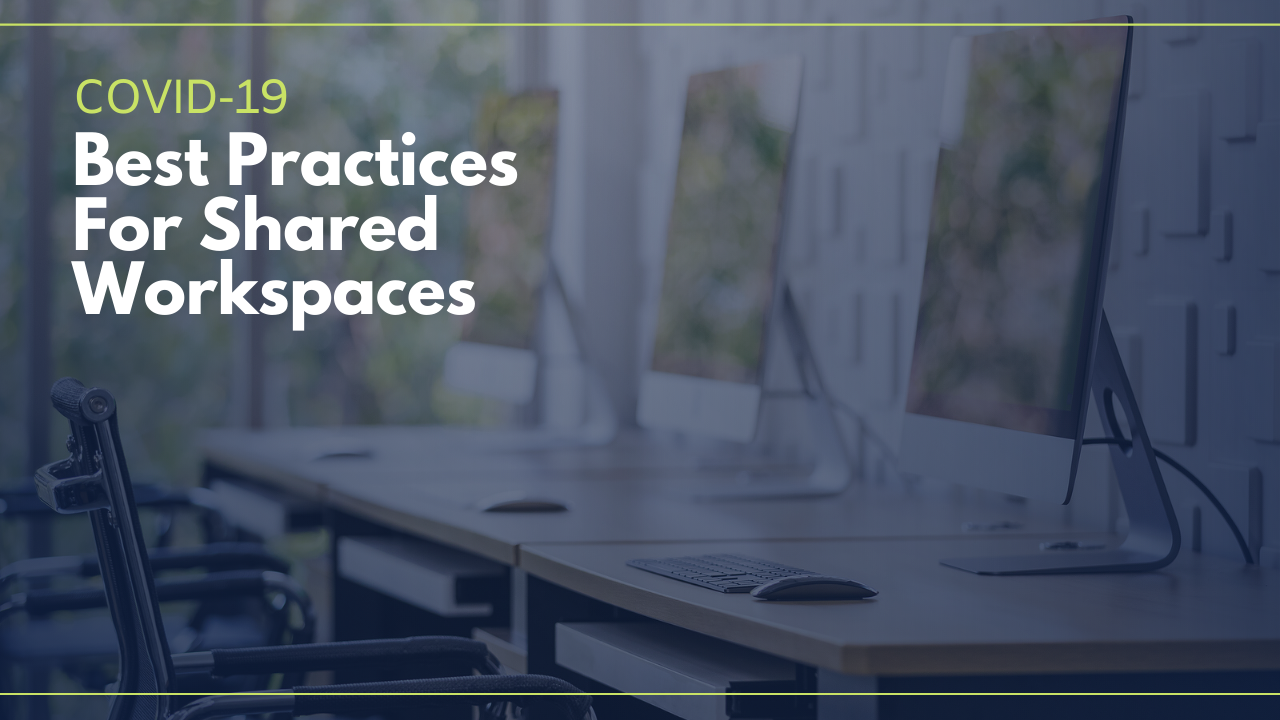- The WHO has declared the outbreak of COVID-19 as pandemic.
- Small actions taken individually can go a long way in slowing down the rate of transmission.
- Flexible workspace operators are responding to the pandemic by providing free private office upgrades, professionally disinfecting areas, and offering a variety of other business support services to members.
Updated March 25, 11:00 AM
The World Health Organization (WHO) officially declared the novel coronavirus outbreak as a pandemic.
On March 11, 2020, the World Health Organization (WHO) officially declared the novel coronavirus outbreak as a pandemic.
Tedros Adhanom, director-general of the WHO, stated the organization is “deeply concerned both by the alarming levels of spread and severity, and by the alarming levels of inaction.”
We Must Act Now
According to data scientists, there might be a gap between the number of reported cases and the actual number of existing and ongoing cases. There are a few reasons why this is happening:
- There is a significant delay between infection and hospitalization.
- In some countries, testing is not widely available, meaning that the number of cases is likely significantly understated.
- There is a delay between being exposed and contaminated and showing symptoms. In other words, we can only know the true cases that existed in a given day by looking backwards.
The best way to prevent the virus from growing exponentially for longer is to take action now. Taking the necessary actions will help flatten the curve of the coronavirus. This is important because if we can slow down the rate of infection, then the healthcare system is less likely to collapse and will be better equipped to take care of patients.
As it currently stands, there is an uncontrolled transmission of the virus. Small actions taken individually can go a long way in slowing down the rate of transmission.
Suggested Reading
- Minimizing Coronavirus’ Impact is a Race Against Time – This Chart Explains Why
- Coronavirus: Why You Must Act Now
- COVID-19, Your Community, and You — A Data Science Perspective
Dealing with COVID-19: Best Practices for Shared Workspaces
- The first and most important tip that we must start practicing is social distancing. We understand that this can be hard, but it’s necessary. If you cannot or are not ready to fully close your coworking or workplace for the time being, consider the following distancing actions:
- Spread out desks and chairs to at least a couple of meters (3-5 feet) between each station.
- Bring down the allowed number of guests per time to a minimum
- If necessary, use large meeting rooms to make up for lost desk space
- If your building has an elevator, encourage people to wait longer so as not to pack elevators each ride.
- Cancel or postpone any events or activities (yoga lessons, networking happy hours, lunch and learns, etc.) or consider hosting them virtually.
- Encourage workers to work from home, especially if they feel even slightly sick.
- Start disinfecting. Cleaning is no longer enough. Research has found that the coronavirus can survive for a long time on certain surfaces:
- Up to 3 hours in aerosols post aerosolization
- Up to 4 hours on copper
- Up to 24 hours on cardboard
- Up to 2-3 days on plastic and stainless steel.
Here is a list from the CDC of EPA-approved products that can kill off the virus (Clorox Disinfecting Wipes do the trick, as do many other products available at grocery stores). Bear in mind that for the product to work, you have to follow the manufacturer’s instructions, including waiting a few seconds until the product has dried out before using/touching a surface. Here are some additional recommendations on cleaning and disinfecting.
- In the workplace, it’s important to clean and disinfect the following surfaces/areas:
- Desks and tabletops
- Chairs/armrests
- Computer monitors
- Keyboards
- Mobile phones and tables
- Doorknobs
- Printers
- Faucets
- Toilets
- Commonly touched surfaces and handles (microwaves, refrigerator, coffee pot, etc.).
- Packages you receive.
- Provide your workspace members with access to cleaning and disinfecting products so that they can clean their work surfaces regularly. Basic products they should have access to include disposable wipes, paper towels, disinfecting spray.
- Encourage workers and guests to wash their hands often. You should also consider setting up a few alcohol-based hand sanitizer stations that people can easily access throughout the day. It’s important for everyone to keep their hands as clean as possible. Also remind people to avoid touching their face with unwashed hands.
- Consider printing out an infographic or document showcasing the correct way to wash hands. You can use the CDC’s guideline on handwashing and share it with all of your workers or workspace members.
- You can also send the information digitally so that people have it readily available at all times.
- Consider shutting off your HVAC/heating system. Though there is no current evidence that COVID-19 is airborne, this might be a necessary precaution if you are not responsible for your building or unit’s HVAC system maintenance. For any filtration system to work properly, it requires regular cleaning and maintenance. If you’re unsure of when your unit’s system was last cleaned, then this might be a prudent approach.
- Communication is key. You need to have an effective communication system in place should anyone in your workplace test positive for COVID-19. If someone in your workplace tests positive, then every single person that was exposed should be made aware of this as soon as possible. People that have been exposed should be isolated.
Another key element of communication is frequency. You should be sending frequent updates to your members, and make sure that all information shared is relevant and specific to your center. This includes issues such as, free upgrades to private offices if you’re offering them, complimentary virtual office or live receptionist services to existing members, and whether or not you’re allowing non-members to visit the space.
- Ban large meetings. In the spirit of reducing the rate of transmission, banning large meetings and events is crucial.
- Consider keeping the kitchen as an off-limits space. The kitchen can be a hot zone in shared workspaces, particularly if you offer free drinks like coffee, tea, and milk. It can be challenging to ensure that all of these surfaces, products are kept clean at all times, so closing the kitchen might make sense.
- Consider closing your workplace temporarily. Though drastic, in some communities this might be the best course of action to mitigate the spread of the virus. In some cases, you might have already experienced a slow-down in the amount of people coming into the workplace. Though this might represent some losses, it could help control the pandemic sooner and the cost of waiting to take these actions might be higher in the long run.
How Flexible Workspaces Are Responding to COVID-19
WORKSUITES
In addition to cleaning and disinfecting highly used areas more regularly, WORKSUITES is also taking the following actions to support its clients during the coronavirus outbreak:
- Free private office upgrades to virtual office, hot desk, and dedicated desk clients.
- Virtual and office clients can request free digital mail services, including mail opening and scanning.
- Free mail forwarding for clients upon request.
- Complimentary telephone answering and transfer services to clients.
- Any unused meeting room hours will be rolled over to the next month for use.
Proximity Spaces
- Daily wipe down of all surfaces, from door knobs and lightswitches to desks and countertops.
- Keep spaces stocked with Clorox wipes, hand sanitizer, hand soap, and tissues that are readily available to staff and clients.
- Providing paper towels in the bathroom.
- Stocking the kitchen with disposable cups, silverware, and plates.
- Reminding staff and clients to wash hands regularly.
- Moving waste bins in restrooms to near the door so that people can avoid direct contact with door knobs and handles.
- Suspended shared snack programs and removed candy dishes from the front desk.
- Extend membership renewal dates and rollover paid-for coworking days should members need to stay home.
Convene
After a member at Convene’s 530 Fifth Avenue location tested positive for the coronavirus, the flexible workspace company decided to close 17 of its locations to help combat the pandemic.
The Wing
Women-focused coworking brand, The Wing, announced that it will close all 11 of its locations. The company will also suspend membership fees while the closures last.
CommonDesk
CommonDesk announced today that it has closed all of its coworking locations to non-members. Current members can still access the spaces, however all centers will be unstaffed.
Seats2Meet
Closed all 100 locations across the Netherlands for a period of 3 weeks.
Bridge Coworking
Canceled external guest meetings and workshop bookings. The space is currently not allowing any casual users in and only permanent desk members can access the space.
Industrious
Industrious has launched Continuous, a program that offers existing members with access to products, services, and solutions that can help them better navigate work from home. The program will offer a community component, a services component–including home IT assistance–, physical productivity kits, and a learning element.
Breather
Breather will provide free private, furnished office and meeting space for the month of April to companies and organizations that are working on the front line during the COVID-19 outbreak and have been deemed essential to continuing to work.
Front line organizations include healthcare, qualified 501(c)(3) nonprofits, and government entities that are organizing to support efforts to flatten the curve and help those directly impacted by COVID-19.



 Dr. Gleb Tsipursky – The Office Whisperer
Dr. Gleb Tsipursky – The Office Whisperer Nirit Cohen – WorkFutures
Nirit Cohen – WorkFutures Angela Howard – Culture Expert
Angela Howard – Culture Expert Drew Jones – Design & Innovation
Drew Jones – Design & Innovation Jonathan Price – CRE & Flex Expert
Jonathan Price – CRE & Flex Expert














